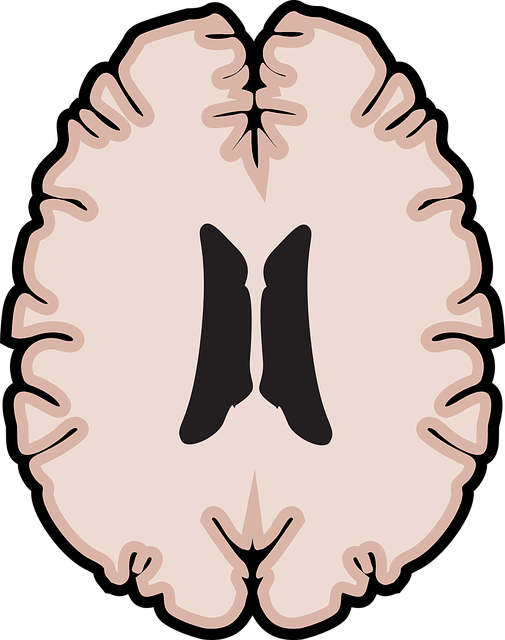Longmont Developmental Disability Therapy focuses on understanding and managing stress, a critical factor affecting individuals with developmental disabilities. They offer tailored interventions like Emotional Well-being Promotion Techniques, teaching coping strategies for communication challenges, sensory sensitivities, and routine changes. Through mindfulness practices, self-esteem building, and sensory tools, clients gain resilience to navigate stressful situations, improving overall life quality. LDDT's stress management techniques include structured self-care routines and personalized plans, empowering individuals to reduce stress levels and foster emotional stability. Key strategies like Social Skills Training and Mindfulness Meditation build long-term stress resilience, challenge stigma, and promote open conversations about mental health.
Stress management is a vital skill, especially for individuals with developmental disabilities. This comprehensive guide explores effective strategies to cope with stress, focusing on the role of specialized therapy like Longmont Developmental Disability Therapy. We delve into understanding the unique impact of stress and its effects, offering practical techniques tailored to personal needs. Learn how to create personalized plans, build long-term resilience, and navigate challenges, ensuring optimal well-being through evidence-based practices.
- Understanding Stress and Its Impact on Individuals with Developmental Disabilities
- The Role of Longmont Developmental Disability Therapy in Teaching Effective Stress Management
- Practical Techniques to Help Manage and Reduce Stress
- Creating a Personalized Stress Management Plan for Optimal Well-being
- Overcoming Challenges: Strategies for Maintaining Long-term Stress Resilience
Understanding Stress and Its Impact on Individuals with Developmental Disabilities

Understanding stress and its impact on individuals with developmental disabilities is a crucial step in teaching effective management techniques. These individuals often face unique challenges that can heighten their stress levels, such as communication difficulties, sensory sensitivities, and changes in routine. Longmont Developmental Disability Therapy recognizes that chronic or prolonged stress can significantly affect emotional well-being and even lead to behavioral issues.
By incorporating tailored Emotional Well-being Promotion Techniques, therapists can help clients develop coping mechanisms specific to their needs. This may include self-esteem improvement strategies, mindfulness exercises, and sensory tools to create a calm environment. Effective stress management for this demographic not only enhances their quality of life but also fosters a sense of control and resilience, enabling them to navigate challenging situations with greater ease.
The Role of Longmont Developmental Disability Therapy in Teaching Effective Stress Management

Longmont Developmental Disability Therapy (LDDT) plays a pivotal role in teaching effective stress management techniques to individuals facing various challenges, including developmental disabilities and associated mental health issues. Through tailored interventions, LDDT helps clients develop coping strategies that address both the symptoms of their conditions and the inherent stressors in their lives.
The therapy focuses on enhancing communication skills, which are essential for managing stress in social settings. By teaching assertive communication strategies, individuals gain the confidence to express their needs and set boundaries, thereby reducing potential sources of stress. Moreover, LDDT incorporates mental illness stigma reduction efforts, acknowledging that stress can often be exacerbated by societal perceptions. Trauma support services within LDDT are designed to help clients process past traumas, which can significantly impact their current stress levels, fostering a more resilient mindset.
Practical Techniques to Help Manage and Reduce Stress

Stress management is an essential aspect of promoting emotional well-being, especially for individuals with developmental disabilities in Longmont Developmental Disability Therapy settings. Teaching practical techniques can empower clients to take control and reduce stress levels effectively. One such technique is mindfulness meditation, which encourages focusing on the present moment, calming the mind, and reducing anxious thoughts. This simple yet powerful tool can be incorporated into daily routines, allowing for better emotional regulation.
Additionally, creating a structured self-care routine is vital for managing stress. Encouraging clients to engage in regular physical activity, practice good sleep hygiene, and incorporate enjoyable hobbies can significantly contribute to improved mental health. Longmont Developmental Disability Therapy programs can guide individuals in developing personalized self-care routines, fostering resilience and emotional stability in the face of stressful situations. These techniques offer a holistic approach to stress management, catering to diverse needs and promoting overall well-being.
Creating a Personalized Stress Management Plan for Optimal Well-being

Creating a personalized stress management plan is an essential step towards achieving optimal well-being, especially for individuals with developmental disabilities navigating the complexities of daily life in Longmont Developmental Disability Therapy settings. This tailored approach recognizes that each person’s stress triggers and coping mechanisms are unique. By assessing individual needs, therapists and care providers can design strategies that go beyond one-size-fits-all solutions. Incorporating techniques from the Mental Wellness Podcast Series Production or participating in Stress Management Workshops Organization can offer valuable insights into effective practices. These resources empower individuals to take charge of their mental health by teaching them to recognize stress, identify personal coping mechanisms, and implement healthy habits.
A well-structured plan might include various components such as mindfulness exercises, physical activity routines, relaxation techniques, or even creative outlets like art therapy. For instance, a risk assessment for mental health professionals can guide the development of safety nets to manage stress levels effectively. By combining professional guidance with self-care practices, individuals can build resilience and enhance their overall quality of life, ensuring they remain equipped to face life’s challenges with greater equanimity.
Overcoming Challenges: Strategies for Maintaining Long-term Stress Resilience

Overcoming challenges is a pivotal aspect of developing long-term stress resilience, especially for individuals with developmental disabilities in Longmont. The journey to stress management involves implementing effective strategies that can be tailored to personal needs and preferences. One powerful tool is Social Skills Training, which equips individuals with the necessary communication and interaction techniques to navigate social situations more confidently. This not only reduces stress but also fosters meaningful connections, a key element in maintaining mental well-being over time.
Additionally, incorporating Mindfulness Meditation into daily routines can significantly enhance stress resilience. By focusing on the present moment, mindfulness meditation helps individuals detach from stressful thoughts and emotions, allowing them to respond calmly to challenging situations. This practice also offers an opportunity to challenge and reduce mental illness stigma, thereby encouraging open conversations about mental health, which is crucial for building a supportive environment conducive to long-term stress management.
Longmont Developmental Disability Therapy plays a pivotal role in equipping individuals with the tools to navigate and manage stress effectively. By understanding the unique impact of stress on those with developmental disabilities, this therapy offers personalized strategies and techniques to foster resilience. Through practical applications and long-term support, individuals can create a tailored stress management plan, enhancing their overall well-being and enabling them to overcome challenges associated with stress. This comprehensive approach ensures that folks with developmental disabilities have the resources needed to thrive in today’s world.













